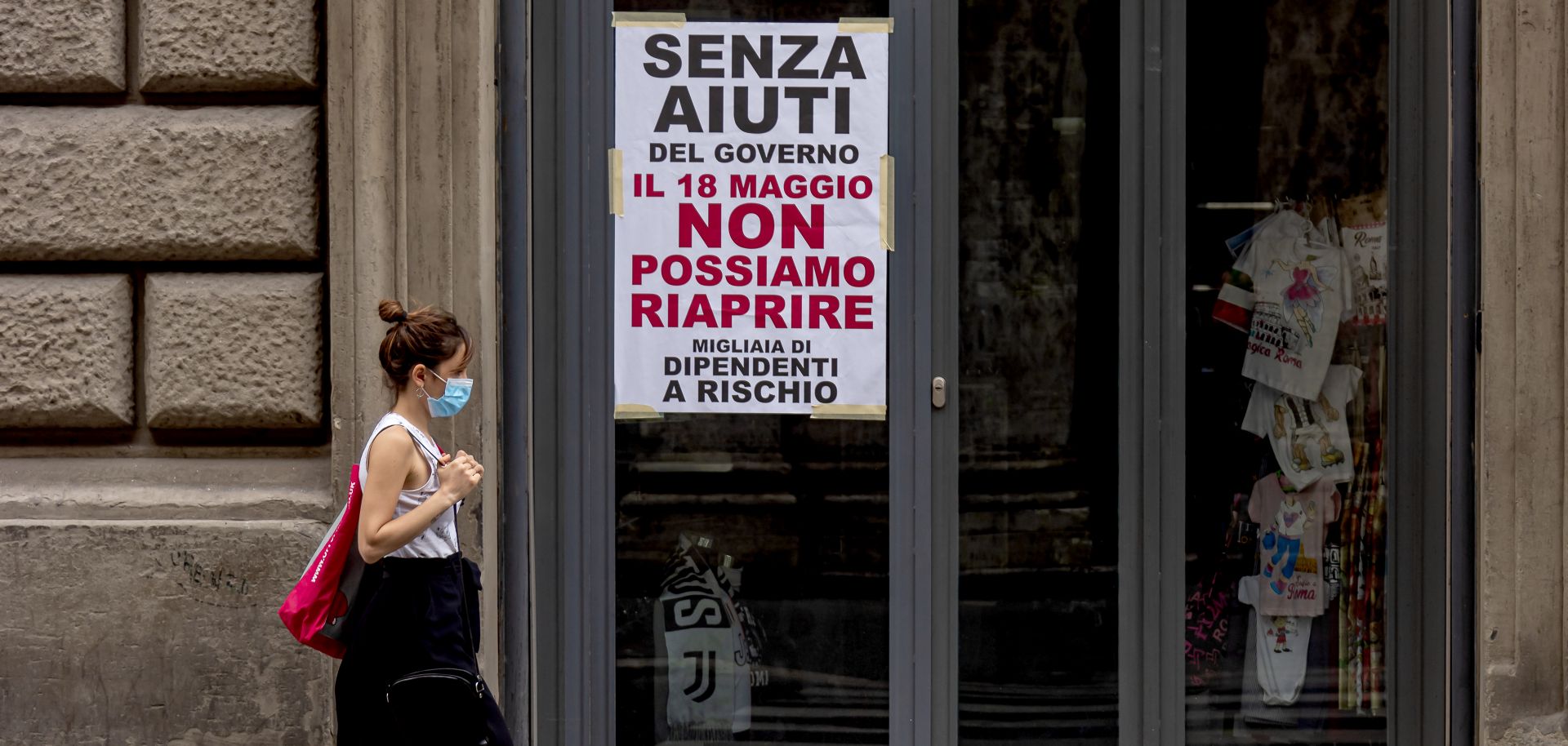ASSESSMENTS
COVID-19’s Uneven Impact on Europe Portends an Equally Uneven Recovery
Oct 12, 2020 | 10:00 GMT

A woman wearing a face mask walks past a closed shop in Rome, Italy, on May 18, 2020. The sign on the store window reads "Without government aid, we cannot reopen on May 18. Thousands of employees at risk."
(Stefano Montesi-Corbis/Getty Images)
Subscribe Now
SubscribeAlready have an account?
